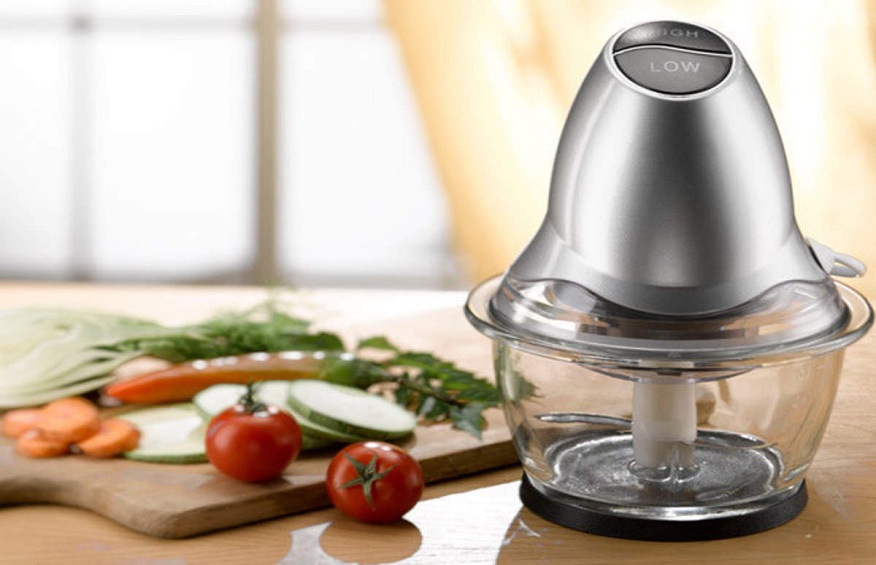In the bustling world of modern kitchens, the debate over manual versus electric food choppers is more relevant than ever. Choosing between the classic hand-operated device and the sleek electric alternative can significantly impact your culinary experience.
Let’s dive into the pros and cons of each, shedding light on which might reign supreme in your kitchen.
1. Noise Levels
Manual Food Choppers
One of the perks of manual choppers is their silent operation. They work without the humming of motors, making them an excellent choice for those who prefer a peaceful cooking environment.
Electric Food Choppers
Electric choppers, while efficient, can be noisy due to their motorized blades. If you value a quiet kitchen space, this might be a factor to consider when choosing your chopper.
2. Cost Considerations
Manual Food Choppers
Manual choppers are generally more budget-friendly upfront. They have a simple design with fewer components, making them a cost-effective choice for those on a tight budget.
Electric Food Choppers
Electric choppers often come with a higher initial cost due to their advanced features. However, the investment might be worthwhile for those who prioritize time savings and a broader range of functions.
3. Energy Efficiency
Manual Food Choppers
Manual choppers are inherently energy-efficient since they don’t rely on electricity. If you’re environmentally conscious or looking to reduce your energy consumption, a manual chopper might align with your values.
Electric Food Choppers
While electric choppers offer convenience, they consume electricity. For eco-conscious users, considering the environmental impact and energy consumption is crucial when weighing the pros and cons.
4. Blade Sharpness and Durability
Manual Food Choppers
Manual choppers often feature sharp, durable blades that can withstand repeated use. With proper care, they can last for an extended period without the need for frequent replacements.
Electric Food Choppers
Electric choppers, while efficient, may require more frequent blade replacements. The motorized operation can lead to faster wear and tear, impacting their long-term durability.
5. Kitchen Space Considerations
Manual Food Choppers
Manual choppers are compact and require minimal storage space. If you have a small kitchen or limited storage, a manual chopper might be the ideal space-saving solution.
Electric Food Choppers
Electric choppers, with their additional components and power source, may demand more space in your kitchen. Consider your kitchen layout and storage options before opting for an electric model.
6. User Learning Curve
Manual Food Choppers
Using a manual chopper is intuitive, requiring a minimal learning curve. Most users can master the technique quickly, making it accessible for cooks of all skill levels.
Electric Food Choppers
Electric choppers, with their various settings and attachments, might have a steeper learning curve. However, once mastered, they can streamline your food preparation process significantly.
7. Consistency in Results
Manual Food Choppers
Achieving consistent results with a manual chopper depends on the user’s skill and technique. While this allows for personalized outcomes, it might result in variations in the texture and size of chopped ingredients.
Electric Food Choppers
Electric choppers, equipped with precise settings, consistently deliver uniform results. This feature is especially valuable when you’re aiming for a standardized chop size in recipes.
8. Capacity for Large Quantities
Manual Food Choppers
Manual choppers may pose a challenge when dealing with large quantities of ingredients. The manual effort required can be tiring and time-consuming when chopping substantial amounts of vegetables or herbs.
Electric Food Choppers
Electric choppers shine when it comes to handling large quantities efficiently. Their motorized blades can swiftly process generous batches, making them a practical choice for gatherings or meal prepping.
9. Safety Features
Manual Food Choppers
Manual choppers typically have fewer safety concerns since they don’t involve electrical components. Users have more control over the chopping process, minimizing the risk of accidents.
Electric Food Choppers
Electric choppers often come with safety features such as automatic shut-off and blade-locking mechanisms. These features enhance user safety but may add complexity to the appliance.
10. Aesthetics and Design
Manual Food Choppers
Manual choppers, with their classic design, can add a touch of nostalgia and simplicity to your kitchen. They are often appreciated for their aesthetic appeal and durability.
Electric Food Choppers
Electric choppers, with sleek and modern designs, can complement contemporary kitchen aesthetics. Their stylish appearance might be a deciding factor for those who value the overall look of their kitchen appliances.
Conclusion: Tailoring Your Choice to Your Culinary Lifestyle
In the manual vs. electric food chopper debate, each option brings a unique set of characteristics to the table. To make the best decision for your kitchen, consider not only the functional aspects but also your personal cooking style, preferences, and the overall vibe of your culinary space.
Whether you opt for the hands-on precision of a manual chopper or the automated efficiency of an electric counterpart, both have their merits. Your choice should resonate with your individual needs and enhance the joy of cooking in your kitchen. Happy chopping and savor the flavors of your culinary creations!

